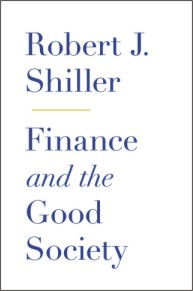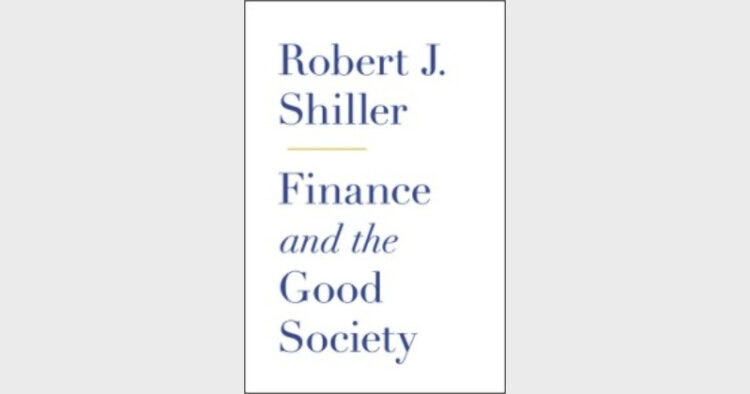New financial instruments a boon or bane??
Dr R. Balashankar?
 Finance and the Good Society, Robert J Shiller, Princeton University Press, Pp 288 (HB), $24.95.?
Finance and the Good Society, Robert J Shiller, Princeton University Press, Pp 288 (HB), $24.95.?
Too much of anything is good for nothing goes the ancient saying. Combine with it the speed to get ‘too much’, there is a recipe for disaster. Here one is referring to the financial collapse of much of the West which affected much of the world. Discussions and debates have been galore on whether this was the result of the failure of the ideology of capitalism, the let down by the institutions and instruments, lack of discipline in the free market, government indifference, the list is long. All these must have had some role. But now the question needing answer, is what next? Should the West dump and damn the finance system as an ugly monster. No, says Robert J. Shiller in Finance and the Good Society.
On the other hand, he says the system needs to be corrected, altered and made better for the benefit of a larger population. “Finance should not be viewed as inherently or exclusively elitist or as an engine of economic injustice. Finance, despite its flaws and excesses, is a force that potentially can help us create a better, more prosperous, and more equitable society. In fact, finance has been central to the rise of prosperous market economies in the modern age—indeed this rise would be unimaginable without it.”
Reviewing the worldwide ‘Occupy’ movement across the globe, Shiller says, “The most consistent theme in all these movements has been a plea for better democracy, lamenting a perceived conspiracy between government and their associated financial establishments. While their arguments and rhetoric are not always coherent, the protests represent, in substantial measure, a welcome assertion of democratic values and citizen responsibility”.
Shiller discusses the role and responsibility of a whole lot of players in the financial system. He goes into the nitty-gritty of the part played by the CEOs, the investment bankers, managers, traders, lobbyists, the regulators, the accountants and auditors, the financiers, policy and the philanthropists. Why philanthropists? Because, says Shiller, they are the ones for whom money-making is a mission and then give it away. If they had not been focussed on money making they would not be so rich as to distribute largesse to various causes.
The second part of the book moves to less tangible aspects like impulse, risk, speculation, and leverage. As part of solutions, Shiller suggests educating the general public on the financial system, a process of democratisation, a bit of government intervention and mindful spending. “The democratisation of finance works hand in hand with the humanisation of finance. To that extent it is important that finance be humane, and that it incorporate our increasingly sophisticated understanding of the human mind into its systems, models, and predictions”. Democratisation, he adds entails a more effective system of institutions and risk management that can check random distribution of wealth.
Shiller acknowledges that some people in the financial system, who ‘made it,’ wield an enormous amount of power. This power seems to derive from financial capitalism. And this rankles. One need not be a left-wing person to nurture this feeling he says. According to him, nearly eighty-five thousand books have been written on “wealth and power.” More interestingly, “a good fraction” of them seem to regard existence of wealthy and powerful as a scandal that “deserves our contempt.” And that mind-set needs to be changed, to make people understand the ‘goodness’ of the financial system.
Robert J. Shiller is the Arthur M. Okun, Professor of Economics, in Yale University, where he has been teaching more than two decades. An author of several insightful books on various aspects of economics, his repeat-sale home price indices, published as the Standard & Poor’s/Case Shiller Home Price Indices is a standard reference book. A scholar more than qualified for writing on the possible corrections to a chaos prevailing.
(Princeton University Press, 41 William Street, Princeton, New Jersey 08540)













Comments